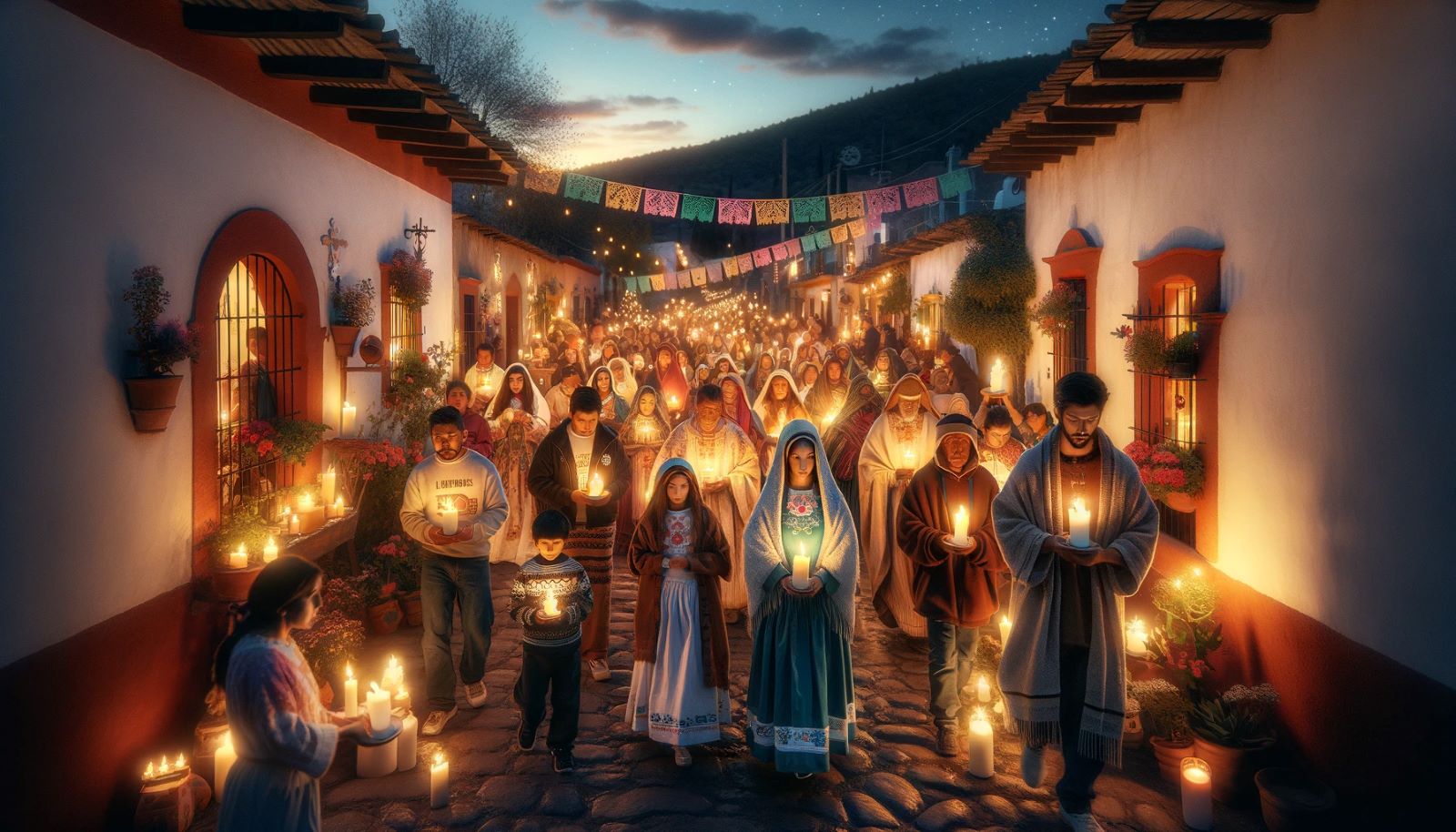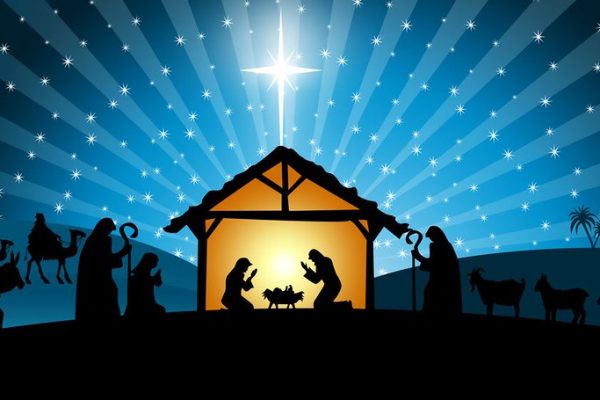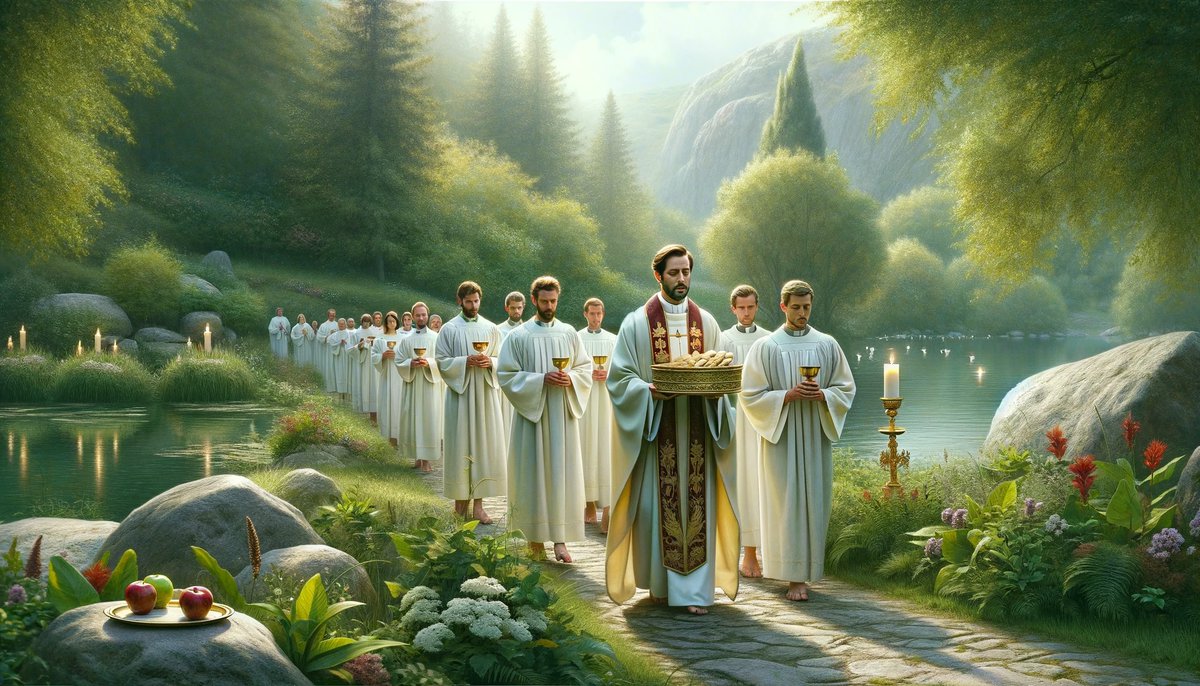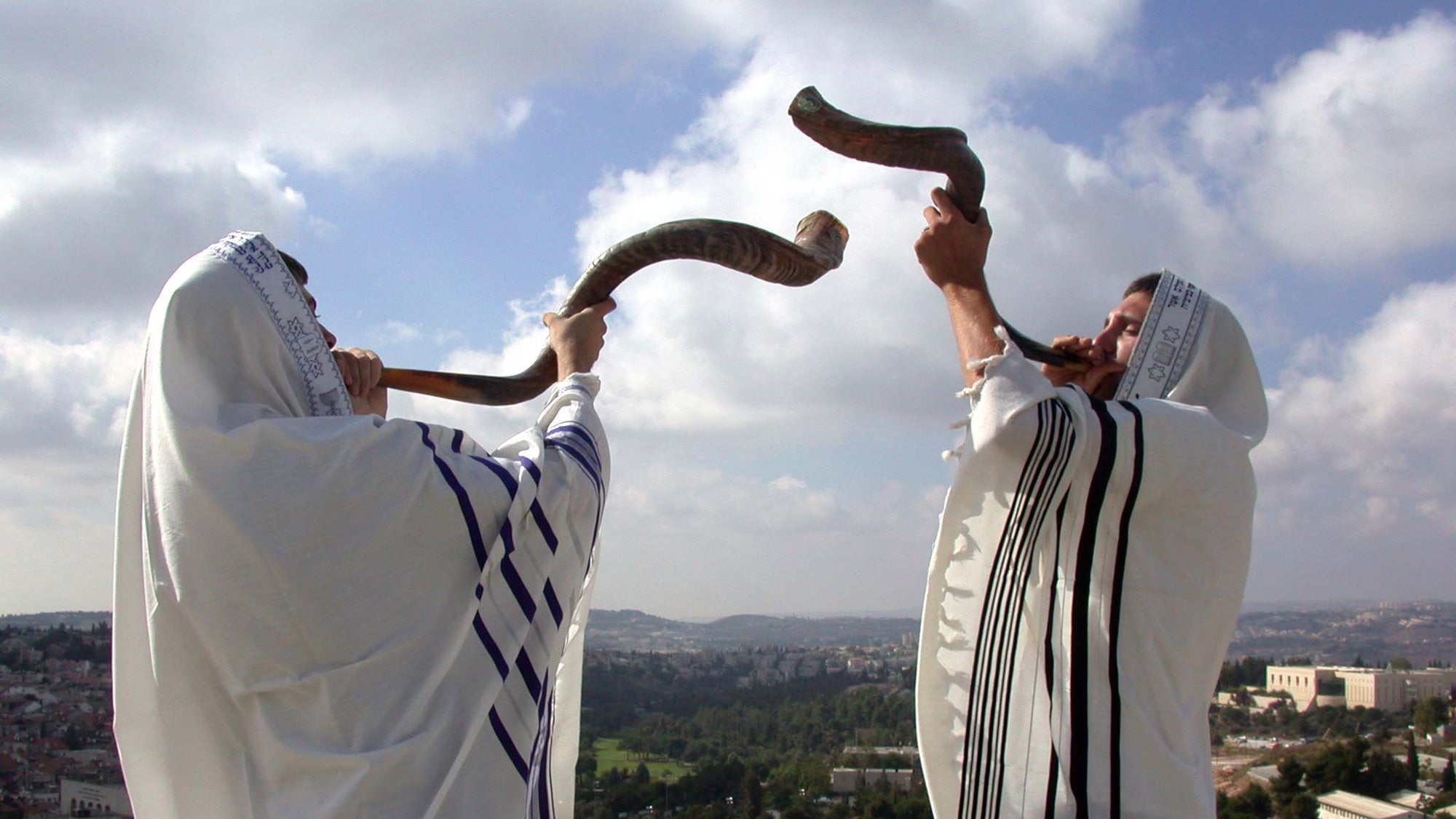Home>Special Themes>Who Celebrate Advent
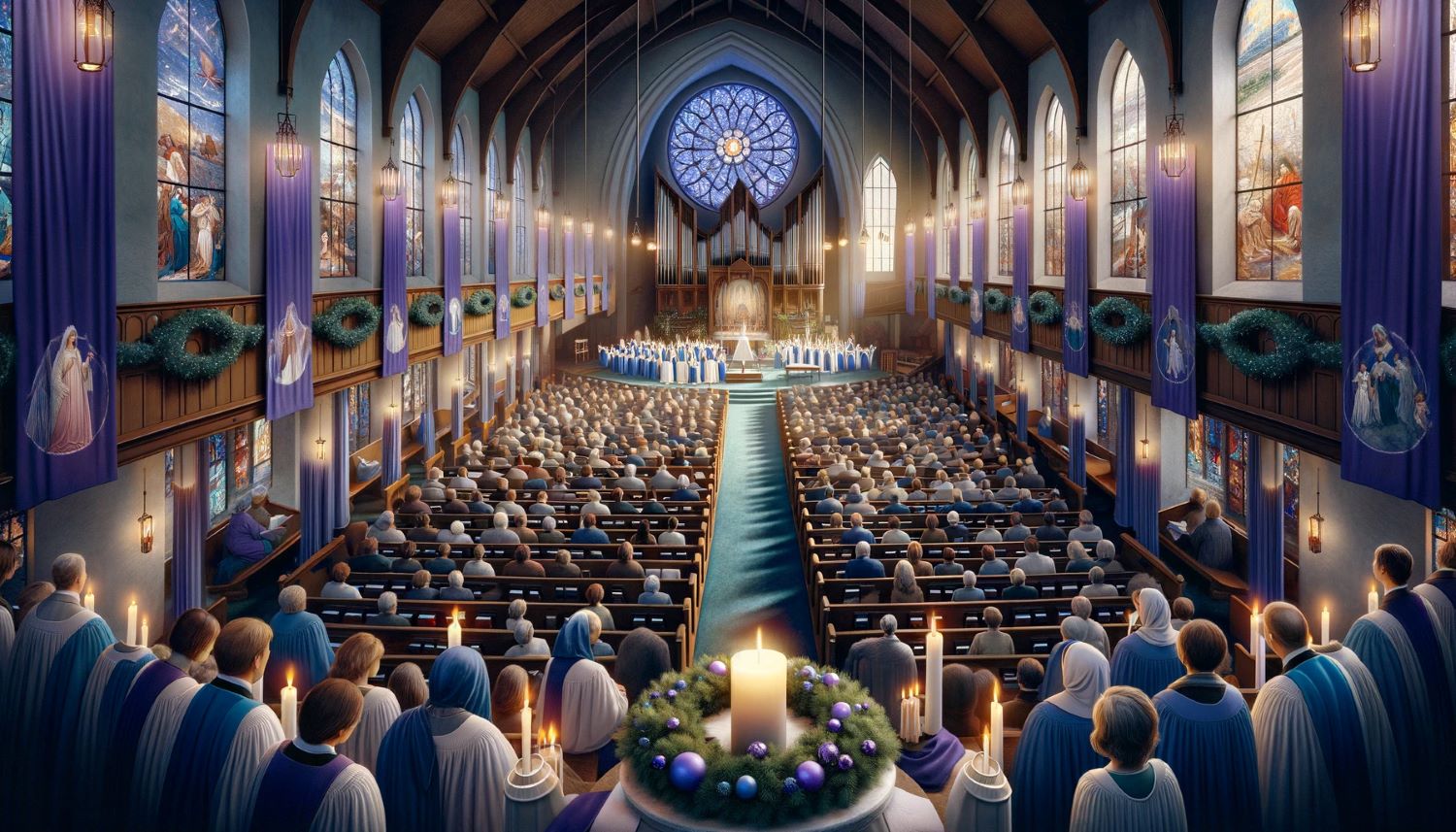

Special Themes
Who Celebrate Advent
Published: February 12, 2024
Peter Smith, Editorial Director at Christian.net, combines deep insights into faith, politics, and culture to lead content creation that resonates widely. Awarded for his contributions to religious discourse, he previously headed a major organization for religious communicators, enhancing dialogue on faith's societal impacts.
Discover how different cultures and religions celebrate Advent with unique special themes and traditions. Explore the significance of Advent in various traditions and customs.
(Many of the links in this article redirect to a specific reviewed product. Your purchase of these products through affiliate links helps to generate commission for Christian.net, at no extra cost. Learn more)
Table of Contents
Introduction
Advent, a time of anticipation and preparation, holds significant cultural and religious importance for various Christian denominations and communities around the world. This sacred period, which typically begins on the fourth Sunday before Christmas, marks the start of the liturgical year and is observed with diverse traditions and customs. As we delve into the multifaceted celebrations of Advent, we will explore the distinct practices and observances embraced by different Christian churches, shedding light on the rich tapestry of this festive season.
The anticipation of the birth of Jesus Christ is at the heart of Advent, symbolizing hope, love, joy, and peace. It serves as a spiritual journey for believers, fostering a sense of reflection and spiritual renewal as they prepare to commemorate the nativity of Jesus. Throughout this period, various rituals, prayers, and devotions are observed, creating a sense of unity and shared purpose among the faithful.
As we embark on this exploration, we will uncover the unique customs and traditions upheld by different Christian denominations, including the Protestant, Catholic, and Orthodox churches. Additionally, we will delve into the diverse ways in which Advent is celebrated by various non-Christian communities, highlighting the universal themes of hope and renewal that resonate across different cultures and faith traditions.
The significance of Advent extends beyond religious boundaries, encompassing a spirit of unity, compassion, and goodwill that transcends cultural and geographical divides. By delving into the rich tapestry of Advent celebrations, we gain a deeper understanding of the profound impact of this season on individuals and communities worldwide. Join us on this enlightening journey as we unravel the vibrant tapestry of Advent, exploring the myriad ways in which this cherished season is observed and celebrated across the globe.
Read more: Why Is Advent Celebrated
Christian Churches
The observance of Advent holds a central place in the liturgical calendars of numerous Christian churches, each embracing distinct traditions and practices that enrich the spiritual significance of this season. From the Anglican Communion to the Lutheran Church, Advent serves as a time of profound reflection and anticipation, uniting believers in a shared journey of spiritual preparation.
Within the Anglican Communion, Advent heralds the commencement of the liturgical year, marked by the lighting of the Advent wreath and the use of purple or blue vestments to symbolize penitence and expectation. The Anglican tradition emphasizes the themes of hope, peace, joy, and love, with each week of Advent dedicated to the illumination of these profound virtues through scripture readings and prayers.
Similarly, the Lutheran Church reveres Advent as a period of devout contemplation, embracing the symbolic significance of the Advent wreath and the lighting of candles to symbolize the progressive revelation of Christ's light in the world. The observance of Advent in Lutheran congregations is characterized by solemnity and reverence, as believers engage in prayerful reflection and spiritual introspection in preparation for the joyous celebration of Christmas.
In the Methodist tradition, Advent serves as a time of spiritual renewal and anticipation, with congregations embracing the ritual of lighting the Advent candles and partaking in hymns and prayers that evoke the profound themes of hope, peace, joy, and love. The Methodist Church emphasizes the spiritual significance of Advent as a period of preparation for the coming of Christ, fostering a sense of communal unity and shared devotion among its members.
The Advent season in the Presbyterian Church is marked by a deep reverence for the prophetic anticipation of Christ's birth, with congregations engaging in scripture readings, liturgical prayers, and the lighting of the Advent wreath to symbolize the gradual illumination of the world by the light of Christ. This period of spiritual preparation and expectation underscores the Presbyterian commitment to embracing the timeless traditions and sacred rituals that enrich the Advent observance.
Across these diverse Christian denominations, the observance of Advent unites believers in a shared journey of spiritual preparation, fostering a sense of communal devotion and anticipation as they prepare to commemorate the birth of Jesus Christ. The rich tapestry of Advent traditions within Christian churches reflects the universal themes of hope, peace, joy, and love, underscoring the profound spiritual significance of this sacred season.
Protestant Churches
The observance of Advent within Protestant churches encompasses a rich tapestry of traditions and customs that imbue this sacred season with profound spiritual significance. From the lighting of the Advent wreath to the solemnity of Advent hymns and prayers, Protestant denominations embrace diverse practices that symbolize the anticipation and preparation for the celebration of Christ's birth.
In the Episcopal Church, Advent marks the beginning of the liturgical year, signifying a period of spiritual introspection and anticipation. The lighting of the Advent wreath, adorned with four candles representing the four weeks of Advent, serves as a poignant symbol of the gradual illumination of the world by the light of Christ. Each candle, lit successively on the four Sundays of Advent, embodies the themes of hope, peace, joy, and love, infusing the congregation with a sense of profound spiritual contemplation and expectation.
Similarly, the Advent observance in the United Methodist Church is characterized by the symbolic significance of the Advent wreath and the lighting of candles to represent the progressive revelation of Christ's light in the world. This ritual serves as a powerful visual reminder of the spiritual journey undertaken during Advent, fostering a sense of unity and shared devotion among congregants as they engage in scripture readings and prayers that evoke the timeless themes of hope, peace, joy, and love.
In the Lutheran tradition, Advent is revered as a period of devout contemplation and spiritual preparation, with congregations embracing the solemnity of Advent hymns and prayers that underscore the profound significance of this season. The lighting of the Advent wreath, accompanied by scripture readings that illuminate the themes of anticipation and redemption, creates a sacred atmosphere of reverence and expectation as believers embark on a spiritual journey towards the celebration of Christ's birth.
The Advent season in the Presbyterian Church is marked by a deep reverence for the prophetic anticipation of Christ's birth, with congregations engaging in scripture readings, liturgical prayers, and the lighting of the Advent wreath to symbolize the gradual illumination of the world by the light of Christ. This period of spiritual preparation and expectation underscores the Presbyterian commitment to embracing the timeless traditions and sacred rituals that enrich the Advent observance.
Across these Protestant denominations, the observance of Advent serves as a unifying force, fostering a sense of communal devotion and anticipation as believers prepare to commemorate the birth of Jesus Christ. The diverse traditions and customs embraced by Protestant churches reflect the universal themes of hope, peace, joy, and love, underscoring the profound spiritual significance of this sacred season.
Catholic Church
The Catholic Church venerates the season of Advent as a time of profound spiritual significance, embracing a rich tapestry of traditions and rituals that encapsulate the anticipation and preparation for the celebration of Christ's birth. With a deep-rooted reverence for the sacred observance of Advent, the Catholic Church infuses this season with a sense of solemnity, devotion, and joyful expectation.
At the heart of the Advent observance in the Catholic Church lies the symbolic lighting of the Advent wreath, a cherished tradition that embodies the progressive revelation of Christ's light in the world. Adorned with four candles, each representing a week of Advent, the lighting of the Advent wreath serves as a poignant visual reminder of the spiritual journey undertaken during this sacred season. The first three candles, often purple or blue in color, symbolize hope, peace, and joy, while the fourth candle, typically rose-colored, represents love. As each candle is lit successively on the four Sundays of Advent, congregants are imbued with a profound sense of spiritual contemplation and anticipation, fostering a collective devotion to the themes of hope, peace, joy, and love.
The observance of Advent in the Catholic Church is further enriched by the timeless tradition of the Advent calendar, a cherished symbol of the countdown to Christmas. This beloved custom, often embraced by families and communities, serves as a joyful reminder of the approaching celebration of Christ's birth, infusing each day of Advent with a sense of eager anticipation and spiritual reflection.
Throughout the Advent season, Catholic congregations engage in scripture readings, liturgical prayers, and devotional practices that underscore the profound significance of this period of spiritual preparation. The themes of hope, peace, joy, and love permeate the sacred rituals and observances, fostering a sense of communal unity and shared devotion among believers as they prepare to commemorate the nativity of Jesus.
The Catholic Church's observance of Advent exemplifies a deep reverence for the spiritual journey of anticipation and preparation, infusing this sacred season with a profound sense of unity, devotion, and joyful expectation. Through cherished traditions and timeless rituals, the Catholic faithful embark on a spiritual pilgrimage that culminates in the joyous celebration of the birth of Jesus Christ, embracing the universal themes of hope, peace, joy, and love that resonate at the core of the Advent observance.
Orthodox Churches
The Orthodox Church holds a deep reverence for the sacred observance of Advent, embracing a rich tapestry of traditions and customs that infuse this season with profound spiritual significance. With a legacy rooted in ancient traditions and timeless rituals, the Orthodox faithful embark on a spiritual journey of anticipation and preparation, culminating in the joyous celebration of the nativity of Jesus Christ.
In the Orthodox tradition, Advent, known as the Nativity Fast, spans a period of forty days, commencing on November 15th and culminating on December 24th. This extended period of fasting and spiritual reflection serves as a transformative journey for believers, fostering a sense of profound introspection and devotion as they prepare to commemorate the birth of Christ. The Nativity Fast is characterized by abstinence from certain foods, emphasizing the spiritual discipline and self-reflection that define this sacred season.
The observance of Advent in the Orthodox Church is marked by a deep reverence for the themes of repentance, prayer, and almsgiving, underscoring the spiritual significance of this period of preparation. Believers engage in fervent prayers and devotional practices, seeking spiritual renewal and purification as they anticipate the joyous feast of Christmas. The Orthodox faithful embrace the spiritual disciplines of fasting and prayer, cultivating a sense of humility and reverence as they prepare to welcome the birth of Jesus Christ.
The lighting of the Advent wreath holds symbolic significance in Orthodox congregations, serving as a visual representation of the gradual illumination of the world by the light of Christ. The lighting of candles, accompanied by scripture readings and hymns that evoke the themes of hope, peace, joy, and love, creates a sacred atmosphere of reverence and anticipation. This cherished ritual unites the Orthodox faithful in a shared journey of spiritual contemplation and devotion, fostering a sense of communal unity and anticipation.
Throughout the Nativity Fast, Orthodox believers partake in the sacraments of confession and Holy Communion, seeking spiritual purification and renewal in preparation for the celebration of Christ's birth. The Orthodox Church's observance of Advent exemplifies a profound commitment to spiritual introspection and anticipation, infusing this sacred season with a sense of unity, devotion, and joyful expectation.
The Orthodox faithful embark on a transformative spiritual pilgrimage during the Nativity Fast, embracing the universal themes of hope, peace, joy, and love that resonate at the core of the Advent observance. Through cherished traditions and timeless rituals, the Orthodox Church prepares to joyously celebrate the birth of Jesus Christ, embodying the profound spiritual significance of this sacred season.
Read more: What Religion Is Advent Celebrated
Other Christian Denominations
In addition to the prominent Christian churches and denominations, there exist a myriad of other Christian traditions and communities that observe the season of Advent with unique customs and practices. These diverse denominations, ranging from the Reformed Church to the Baptist tradition, enrich the tapestry of Advent celebrations with their distinct rituals and observances.
The Reformed Church embraces the sacred observance of Advent as a period of spiritual preparation and anticipation, emphasizing the themes of hope, peace, joy, and love through scripture readings, liturgical prayers, and the lighting of the Advent wreath. This cherished tradition fosters a sense of communal devotion and unity among congregants as they embark on a spiritual journey towards the celebration of Christ's birth.
Similarly, the Advent observance in the Baptist tradition is characterized by a deep reverence for the prophetic anticipation of Christ's coming, with congregations engaging in scripture readings, hymns, and prayers that evoke the timeless themes of hope and redemption. The lighting of the Advent candles serves as a poignant symbol of the gradual illumination of the world by the light of Christ, infusing the congregation with a sense of profound spiritual contemplation and expectation.
The Advent season in the Anabaptist tradition is marked by a commitment to simplicity and spiritual introspection, with believers embracing the themes of humility, repentance, and joyful expectation. The observance of Advent in Anabaptist communities is characterized by fervent prayers, devotional practices, and acts of compassion, reflecting a deep reverence for the spiritual significance of this sacred season.
The Advent observance in the Pentecostal tradition embodies a spirit of joyful anticipation and spiritual renewal, with congregations embracing the themes of hope, peace, joy, and love through vibrant worship, fervent prayers, and expressions of gratitude. This period of spiritual preparation fosters a sense of communal unity and shared devotion among Pentecostal believers as they prepare to commemorate the birth of Jesus Christ.
Across these diverse Christian denominations, the observance of Advent serves as a unifying force, fostering a sense of communal devotion and anticipation as believers prepare to commemorate the birth of Jesus Christ. The diverse traditions and customs embraced by these denominations reflect the universal themes of hope, peace, joy, and love, underscoring the profound spiritual significance of this sacred season.
Non-Christian Celebrations
The spirit of anticipation and renewal embodied by the Advent season transcends religious boundaries, resonating with diverse communities and cultures beyond the Christian faith. Non-Christian celebrations during this time of year are marked by a tapestry of traditions and customs that reflect the universal themes of hope, joy, and spiritual introspection.
In Jewish tradition, the festival of Hanukkah coincides with the Advent season, embodying a spirit of hope and resilience. Hanukkah, also known as the Festival of Lights, commemorates the rededication of the Second Temple in Jerusalem and the miracle of the oil that burned for eight days. Families light the menorah, adding a candle each night, symbolizing the enduring light of faith and perseverance. The observance of Hanukkah embodies the themes of hope and spiritual renewal, resonating with the spirit of anticipation that defines the Advent season.
In the Islamic tradition, the month of Rabi' al-awwal holds special significance, marking the birth of the Prophet Muhammad. This occasion, known as Mawlid al-Nabi, is celebrated with prayers, devotional gatherings, and acts of charity. The observance of Mawlid al-Nabi embodies the themes of compassion, unity, and spiritual reflection, echoing the spirit of renewal and goodwill that permeates the Advent season.
In Hindu culture, the festival of Diwali, also known as the Festival of Lights, coincides with the Advent season, symbolizing the triumph of light over darkness and the victory of good over evil. Families illuminate their homes with oil lamps and candles, signifying the inner light of knowledge and the dispelling of ignorance. The observance of Diwali embodies the themes of hope, joy, and spiritual enlightenment, resonating with the spirit of anticipation and renewal embraced during Advent.
In Buddhist tradition, the festival of Bodhi Day commemorates the enlightenment of Siddhartha Gautama, the Buddha. This observance, marked by meditation, chanting, and acts of generosity, embodies the themes of awakening, compassion, and spiritual transformation. Bodhi Day resonates with the spirit of introspection and renewal that defines the Advent season, fostering a sense of inner peace and enlightenment.
These non-Christian celebrations, each imbued with unique traditions and spiritual significance, reflect the universal themes of hope, renewal, and compassion that resonate across diverse cultures and faith traditions. As the world embraces the spirit of anticipation and reflection during the Advent season, these diverse observances serve as a testament to the enduring human quest for spiritual enlightenment and the universal longing for peace and goodwill.
Conclusion
The diverse and vibrant celebrations of Advent, spanning across various Christian denominations and non-Christian traditions, embody the universal themes of hope, renewal, and spiritual anticipation. From the cherished rituals of the Catholic Church to the profound spiritual disciplines observed in Orthodox communities, the observance of Advent unites believers in a shared journey of preparation and reflection.
The Advent season serves as a poignant reminder of the enduring human quest for spiritual enlightenment and the universal longing for peace and goodwill. It transcends religious boundaries, resonating with diverse communities and cultures, from the Festival of Lights in Jewish and Hindu traditions to the observance of Mawlid al-Nabi in the Islamic faith. These celebrations, each imbued with unique traditions and spiritual significance, reflect the universal themes of hope, renewal, and compassion that resonate across diverse cultures and faith traditions.
As we reflect on the rich tapestry of Advent celebrations, we are reminded of the profound impact of this sacred season on individuals and communities worldwide. The anticipation of the birth of Jesus Christ serves as a unifying force, fostering a sense of communal devotion and anticipation that transcends cultural and geographical divides. The lighting of the Advent wreath, the recitation of scripture readings, and the observance of cherished traditions create a sacred atmosphere of reverence and expectation, infusing each day of Advent with a sense of eager anticipation and spiritual reflection.
The observance of Advent, with its diverse customs and practices, embodies the universal themes of hope, love, joy, and peace, resonating with the human spirit's timeless longing for spiritual renewal and enlightenment. As we embrace the spirit of anticipation and reflection during the Advent season, we are reminded of the enduring human quest for spiritual enlightenment and the universal longing for peace and goodwill. Through diverse traditions and timeless rituals, the observance of Advent serves as a testament to the profound impact of this sacred season on individuals and communities worldwide.






